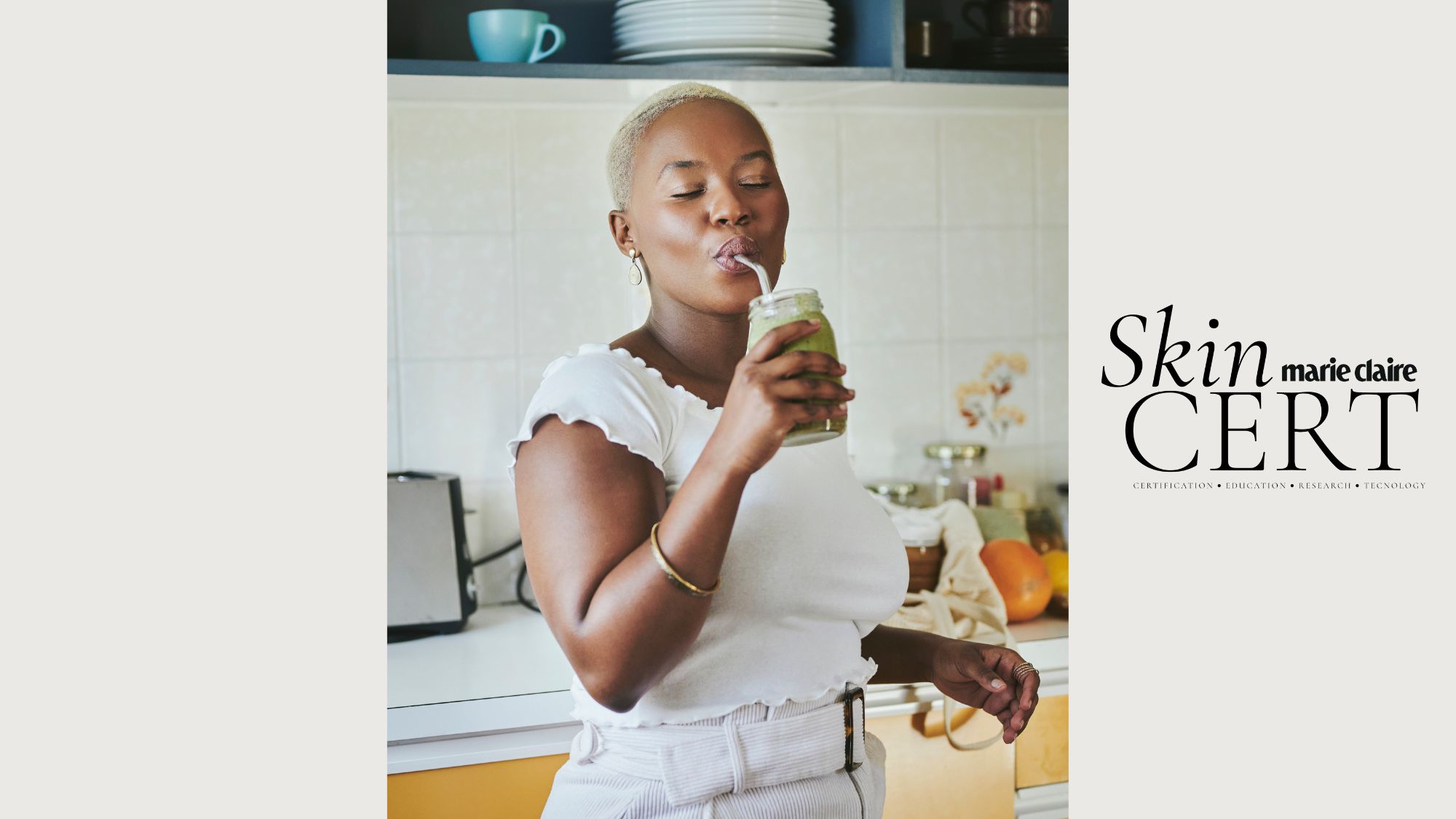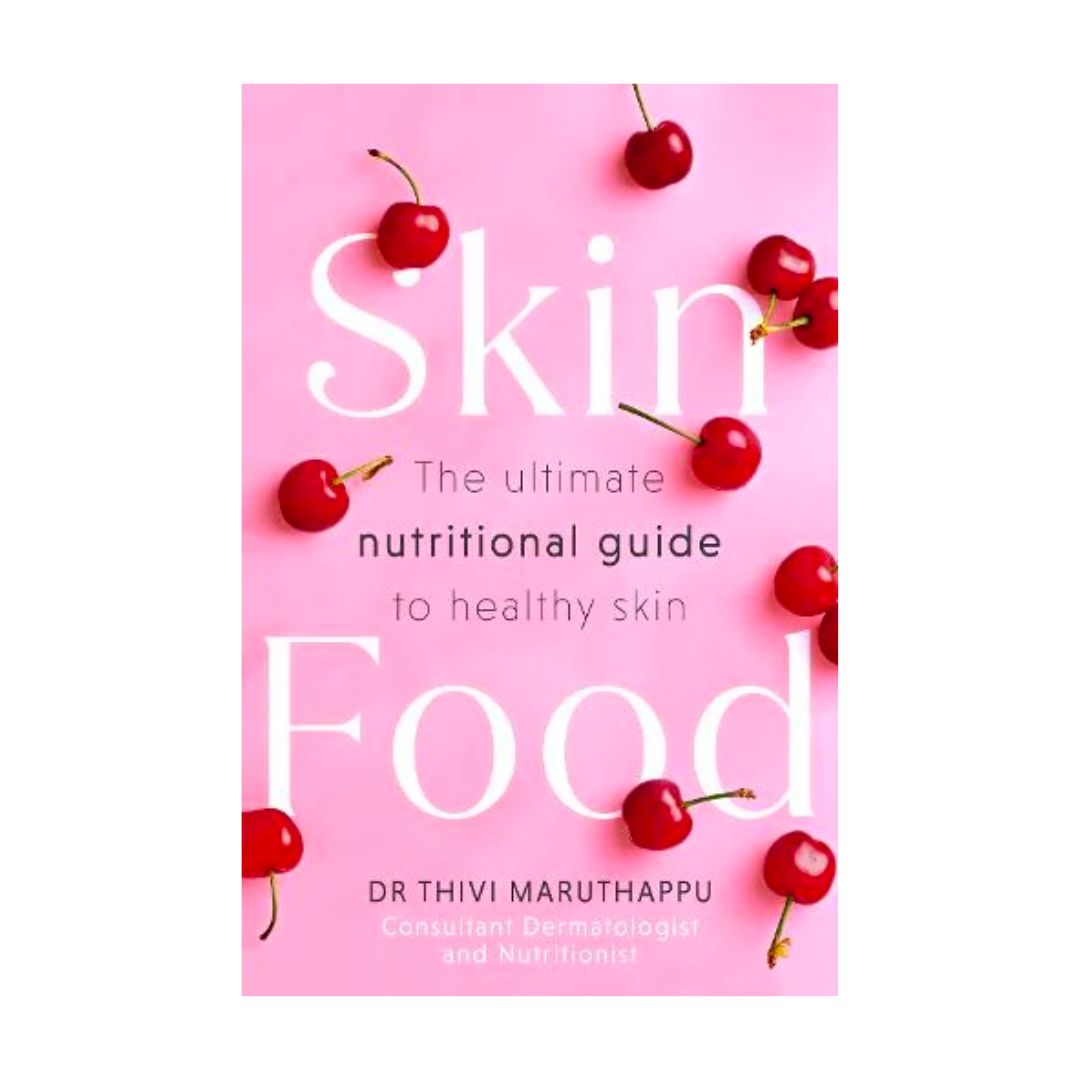The 5 foods a dermatologist recommends having on your plate (and 3 foods to be cautious of)
Glowing skin, this way


Before we get into this, I want to make something very clear: if you have an issue with your skin right now, please know that no diet is going to clear it up. As a beauty journalist of nearly a decade, I have learned enough to know that any claims of exclusionary diets being able to clear up skin problems are, for the most part, false. As with any skin concern, whether it be acne, rosacea or eczema, the best advice is always to see a doctor before you make any drastic changes to your lifestyle.
I feel so passionately about this, in fact, that up until this point, I have never written anything about the relationship between food and skin—I'm not a doctor, after all. However, when I started having problems with my skin back in 2020, I booked in to see one of the best consultant dermatologists I know, Dr Thivi Maruthappu. What Dr Maruthappu has taught me about skin over the course of two years has, truly, changed the way I approach my skincare routine.
As mentioned, Dr Maruthappu is a consultant dermatologist, which means she has trained for many, many years as a doctor who deals more or less exclusively with skin issues. The first lesson you learn as a beauty editor is that consultant dermatologists are the people to go to for unbiased, science-led skin information. As well as being a consultant dermatologist, Dr Maruthappu is also a nutritionist who has dedicated a big chunk of her career to the field of nutrition—leading studies on the relationship between nutrition and certain skin conditions (most notably, psoriasis).
In her new book, SkinFood, Dr Maruthappu explains that while the links between skin and nutrition are still not widely researched enough, there are some foods which can aid in giving your skin the best chance of looking its healthiest. There are also some foods which, although she doesn't recommend avoiding (no food should be strictly cut out when it comes to skin, unless you have an intolerance or allergy), she does recommend understanding some of their caveats when it comes to the role they might be playing in your skin's functioning.
Of course, it's needless to say that the below only applies to those who aren't actively trying to manage a particular skin condition, and rather just want the best out of their skin. If you suspect there is something wrong with the way your skin is functioning, please book an appointment with your GP or a dermatologist for the best advice for you. However, if you're interested in the ways in which food has a part to play in your skin's health, here are the five foods Dr Maruthappu recommends adding to your diet (and the three she says to be cautious of).
Best foods for healthy-looking skin
1. Probiotics
"Think kimchi, sauerkraut, kefir and kombucha—the gut-skin axis is real and gut health influences skin health, sometimes contributing to [accelerated] skin ageing, eczema, psoriasis, rosacea and acne/breakouts. The best way to support your gut health is to look at food rather than supplements, and probiotic foods are rich in beneficial good bacteria species."
2. Tomatoes
"Chock full of lycopene, the humble tomato is a powerful food. Lycopene has been shown in studies to help prevent free-radical damage in the skin, which is responsible for the first signs of premature skin ageing. Cooked tomatoes contain higher levels, so use in soups and stews for maximum benefit."
Celebrity news, beauty, fashion advice, and fascinating features, delivered straight to your inbox!
3. Cherries
"There's a reason [my book] SkinFood has cherries on the cover! Full of powerful phytochemicals which fight the skin ageing process and prevent free-radical damage, they also contain compounds which help you catch your beauty sleep—so important for healthy skin."
4. Wholegrains
"We often think carbs are bad for us, but wholegrains such as brown rice, quinoa and whole oats contain micronutrients and support beneficial gut bacteria species due to their fibre-rich content. They also help to balance blood sugar by keeping levels stable."
5. Walnuts
"Walnuts contain the highest level of omega 3 fatty acids of any nut, plus they contain proteins and micronutrients, too. Omega 3 helps to support the skin barrier, keeping it supple and smooth and preventing dryness."
3 foods to be cautious of when it comes to skin concern
1. Alcohol
While we know that alcohol should, of course, always be consumed in moderation for our overall health and wellbeing, it's worth noting that alcohol in excess is linked to certain skin flare ups, too. "Studies show drinking more alcohol is linked to premature skin ageing, and it can also flare skin conditions like rosacea, eczema and psoriasis," she says.
2. Sugar
Again, sugar isn't something to fear or be afraid of—and you certainly shouldn't have to go without entirely. "Just be mindful of sugar. You don't need to cut it out completely, however, it can be known to accelerate premature skin ageing and contribute to breakouts for some (although not everyone)," says Dr Maruthappu.
3. Whey protein supplements
This is something Dr Maruthappu raised with me in my first consultation with her. She asked me if I consume a lot of whey protein supplementation, which surprised me. "They can trigger flares of acne, as they contain high levels of IGF-1. [It's sometimes worth] giving it a miss and sticking to vegan protein powder if you need extra protein," she says. Again, this isn't true for everyone, it's just something to be aware of.

Shannon Lawlor is the Beauty Director at Who What Wear UK. With nearly a decade of experience working for some of the beauty industry’s most esteemed titles, including Marie Claire UK, Who What Wear, Glamour UK, Stylist and Refinery29, Shannon’s aim is to make the conversation around beauty as open, relatable and honest as possible. As a self-confessed lazy girl, Shannon has an affinity for hard-working perfumes, fool-proof make-up products and does-it-all skincare.
